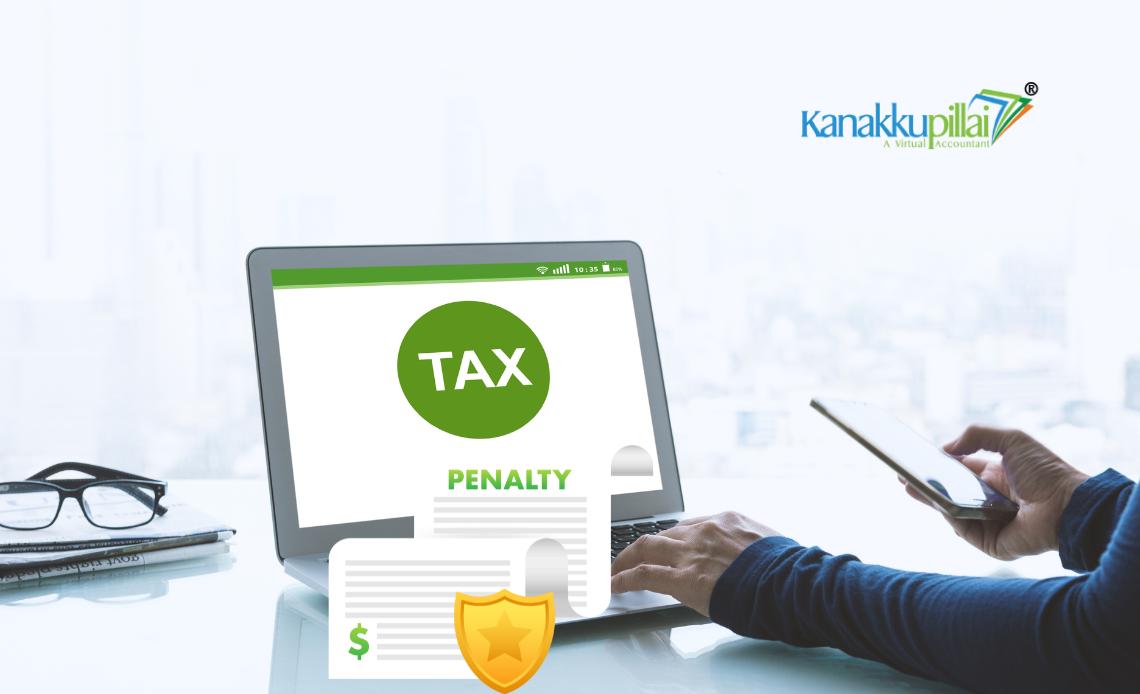GSTR-9 is the annual return of the particular financial year and is a comprehensive document that consolidates all the GST-related activities in one document. Filing it in the right manner is important for all organizations to stay in line and avoid being penalized. Errors while filing GSTR-9 can be accounted for either deliberately or accidentally, but they invite some serious repercussions in terms of money and law. This blog takes a closer look at the penalties for wrong filing of GSTR-9 to help shed more light on the need for compliance and how practitioners can avoid getting it wrong.
What is GSTR-9?
GSTR-9 is an annual return that all taxpayers registered under the Goods and Services Tax (GST) law need to file to furnish a summary of the supplies made, tax paid, credit availed of in a financial year, or any other relevant details. It provides a consolidated report on taxpayers’ GST compliance for the financial year. A proper filing of GSTR-9 guarantees that the taxpayer has properly returned their monthly and quarterly GST returns and also allows the GST authorities to make compliance checks.
Types of Errors in GSTR-9 Filing
Filing mistakes in GSTR-9 can be as simple as inputting misplaced values, up to leaving out large amounts of actual data. Some common mistakes include incorrectly reported taxable supplies, wrong claimed ITC, incorrect reporting of GSTR 1 and GSTR 3 B, and failure to report exempt and nil-rated supplies. Moreover, there are issues arising from faulty classification of goods or services, errors in the computation of the correct tax rate, and inaccurate assessment of amendments. Such errors lead to penalties and interest being paid under the GST law.
Penalties for Wrong Filing of GSTR-9
-
Late Filing Penalty
Filing GSTR-9 after the due date attracts a late fee that will be levied under Section 47 of the CGST Act. The penalty levied is 100 rupees per day in CGST and an equal amount in the SGST, thus totalling 200 rupees/day. However, the fee charged at a later date cannot exceed 0.25% of the total turnover of the taxpayer in the state or the union territory in question.
-
Interest on Tax Liability
For underestimating the GSTR-9 tax amount, the taxpayer shall pay an interest amount on the taxable amount. Interest is provided at 18% per annum for the amount that is due and payable from the given due date till the date it is paid.
-
Penalties for Producers of Inaccurate Reports
Whenever there is an instance of inaccurate reporting that may be detected during the audits or assessments, penalties under Section 122 of the CGST Act may be effected. Where any person commits suppression of facts or furnishes false information, a penalty of Rs 10000 or the amount of tax evaded shall be recovered, whichever is higher.
-
Arrest and Prosecution for Filing of Fraudulent Documents
Certain serious offences where there is an intentional violation of the Act through tax evasion, filing of fraudulent returns, or production of forged records can be amount prosecuted under Section 132 of the CGST Act. In such situations, the perpetrators can be arrested and charged with heavy fines, depending on the nature and severity of the crime.
Impact of Errors on Taxpayers
Mistakes in GSTR-9 negatively affect the operations of a business, tarnish the reputation of the taxpayer, and draw the attention of GST authorities. Failure to do so may result in disallowance of ITC claims, higher taxes and loss of customer confidence, among other things. Further, continuous failure can lead to the suspension or cancellation of the GST registration, which can lead to the interruption of its operations.
How to Avoid Penalties?
- Thorough Reconciliation: It is important to note that the figures reported in GSTR-1, GSTR-3B, and GSTR-2A, for inward and outward supplies, should be matched before GSTR-9 is filed. Such differences should be easily seen and corrected in the particular monthly or other shorter-period returns.
- Verify ITC Claims: This means that careful scrutiny ought to be applied to ITC claims to ensure that they correspond with the amounts spent on purchases and service movements. Check that ITC claims meet the requirements for being lodged, accompanied by a valid tax invoice.
- Use Professional Assistance: Consider and engage a tax consultant or GST expert to review your returns and identify potential errors. Kanakkupillai provides professional tax consultants whose expertise will help a lot in filing accounts in the right manner and in accordance with the GST laws.
- Leverage Automation Tools: Accounting software should be used to work within the GST regime as a way of making GST filing easier. With such tools, one can make fewer errors and get accurate results, hence making compliance less of a challenge.
- Stay Updated on GST Rules: GST regulations are changeable and can be updated from time to time. Therefore, It is important occasionally to do research on the prevailing rules, rates, and filing requirements that apply.
Benefits of Timely and Accurate Filing
The filing of GSTR-9 is the accurate representation of a business’s financial health and its discipline. Accuracy and compliance enable proper claiming of ITCs, resulting in increased efficiency, as well as eliminating interest and penalties and building confidence with stakeholders. It also reduces the chances of firms being audited and investigated by the GST authorities, hence preserving the energies of businesses for creation.
Conclusion
The penalties for wrong filing of GSTR-9 underscore the importance of accurate and timely compliance under the GST law. However, errors can occur, and for this reason, precautions such as regular reconciliation, seeking help from professionals, or the use of technology in paying taxes are recommended to avoid any slips with the laws in the tax sector. This is because compliance has become crucial for businesses to maintain their financial stability and avoid reputational loss in the growing market competition.





